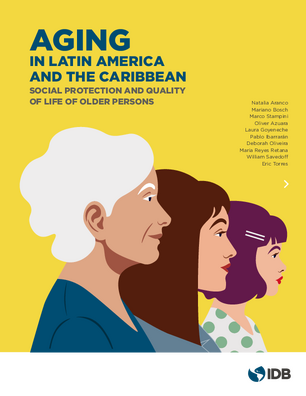Aging in Latin America and the Caribbean: social protection and quality of life of older persons
By Natalia Aranco, Mariano Bosch, Marco Stampini, Oliver Azuara Herrera, Laura Goyeneche, Pablo Ibarrarán, Deborah Oliveira, Maria Torre Retana Reyes, William D. Savedoff & Eric Torres Ramírez
In this report, we analyze older persons quality of life in Latin America and the Caribbean, its relationship with social protection policies, and how these policies must adapt to respond to population aging. We create a measure of quality of life of older persons which combines healthy life expectancy and income security. For the purposes of this report, we define older persons social protection as the combination of pensions, healthcare, and long-term care. These policies have a direct relationship with older persons quality of life. Pensions reduce old-age poverty. Healthcare improves older persons health status and reduces the risk of poverty due to catastrophic medical expenses. Long-term care improves the wellbeing of care dependent persons and their family caregivers. These positive impacts of older persons social protection are documented in a wide body of literature. For each type of policy, we assess the level of coverage, the quality of the benefits they provide, as well as their current and future sustainability, both from a fiscal and from a social perspective.
Read book “here”











